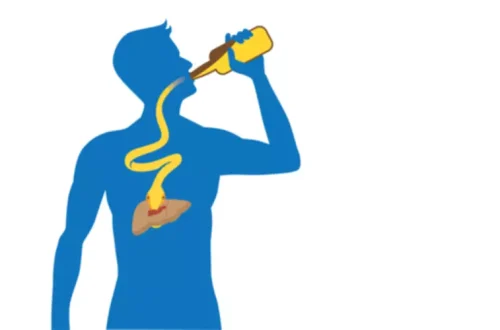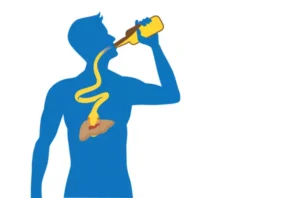
In that regard, mindfulness might be conceptualized as an integral component of a wellness-oriented lifestyle – a catalyst for long-term recovery. Using physical health as an analogy, maintaining a healthy diet and regular exercise across the lifespan is integral to wellbeing. Similarly, mindfulness might need to be practiced on a near daily basis for many years to effectively intervene in addiction and prevent relapse. Research is needed to test the comparative effectiveness of brief versus extended MBIs and the relative cost-effectiveness of these models. Yet, the emerging global emphasis on integrative health supports a holistic approach toward wellness by providing treatment for psychiatric and SUDs in community-based medical settings.
Relapse Prevention
Moving meditation involves practicing mindfulness while engaging in focused movement. You can practice in your own home or in a peaceful place outdoors, such as near a lake, or in a garden, park, or forest. Pay attention to all of the information your senses are receiving from the environment such as the sounds of birds, the crashing of waves, or the smell of flowers. This technique uses personalized mantras to help you reach a calm, focused state of mind. It typically involves 20-minute sessions guided by certified instructors to ensure the mantras are used effectively. It’s especially useful for reducing stress and finding inner calm – key elements for staying on track in recovery.
How to celebrate sobriety milestones meaningfully
Ask them to check in on your progress and be there if you want to talk about experiences that come up. Having a shared experience can help strengthen your practice and connections. The main idea is to use silence as a special tool to talk to the divine.
The Effects of Meth on the Brain and Body During Detox

This may include mindfulness, loving-kindness, or body scan meditations. For example, being mindful throughout the day can be difficult, and it’s often easy to lose focus. Practicing mindfulness and meditation while recovering from addiction encourages you to pay attention to what you do and think about, even things that you’ve been doing on autopilot. These things include the most mundane habits, like scrolling on social media or brushing your teeth.

In Recovery Dharma, we strive to sit with them, without turning to our addictions for relief. Many addicts come into recovery with a history of relationships that they have damaged or that have damaged them. Meditation makes it easier for them to forgive the past and develop healthy relationships. Do some research on different types of meditation and decide which ones you think would be the best fit for you. If you are still determining which type of meditation is right for you, consider trying a few different types and see which ones feel most comfortable and beneficial. We are all different and may receive different benefits from different forms of meditation.
The Importance of Meditation in Recovery Journeys
- Zen Meditation, also known as Zazen, is a type of meditation that comes from Zen Buddhism.
- Mindfulness and meditation in recovery offer a deeper understanding of yourself and help regulate emotions.
- Meditation also impacts the amygdala, which reduces fear and increases the activation of the anterior cingulate cortex, governing motivation and motor control.
- However, the first step is to verify that the rehab facility accepts your insurance.
Discover the qualities of effective addiction treatment centers that https://ecosoberhouse.com/article/what-is-the-most-addictive-drug/ ensure successful and compassionate recovery. Explore the deadliest effects of drugs, from health impacts to addiction risks, and find a path to recovery. Explore effective strategies for recovery during the holidays and celebrate sobriety with confidence and support. Discover the characteristics of best alcohol treatment centers to empower your recovery journey effectively. If you or a loved one is struggling with a substance use disorder, there is help available. For instance, research published in the Journal of Substance Abuse Treatment showed that individuals who paired meditation with professional therapy had a 60% lower relapse rate compared to those who didn’t include meditation 1.

Meditation changes our relationship to pain What is lovingkindness meditation? Like other forms of addiction, addiction to alcohol causes great harm to those who are dependent and everyone connected to… It was written as the next progressive step beyond Alcoholics Anonymous’ 11th Step.
Mindfulness meditation

Utilizing guided meditation apps like Headspace or Insight Timer can aid in keeping practices fresh and engaging, meditation for addiction recovery especially for beginners. Enrolling in support groups or participating in classes centered around mindfulness can provide accountability and motivation. Yes, certain meditation styles are especially suitable for supporting long-term sobriety. Mindfulness-based practices like Mindfulness-Based Stress Reduction (MBSR) and Mindfulness-Based Cognitive Therapy (MBCT) help individuals become more aware of their triggers and automatic responses.
What types and practices of meditation are used in addiction recovery?
We then discuss how mindfulness training intervenes in SUDs and prevents relapse, and review evidence of the mechanisms and efficacy of MBIs for intervening in substance use and preventing relapse. Behaviorally, these neurobiological modifications translate into enhanced self-control, better stress management, and improved emotional resilience. Meditation’s influence on neural circuits strengthens the brain’s capacity to resist compulsive substance use, support healthier coping strategies, and sustain recovery efforts over time.
Understanding Mindfulness Meditation
Now, Sober living house knowing these techniques is one thing, but integrating them into your daily life is where the rubber meets the road. This is like mental surfing, but instead of waves, you’re riding out cravings. The idea is to observe the urge to use substances as it arises, peaks, and eventually subsides, all without acting on it. It’s a powerful way to understand the spirit of addiction and break free from its grip. It’s about watching your thoughts and feelings come and go without getting caught up in them.